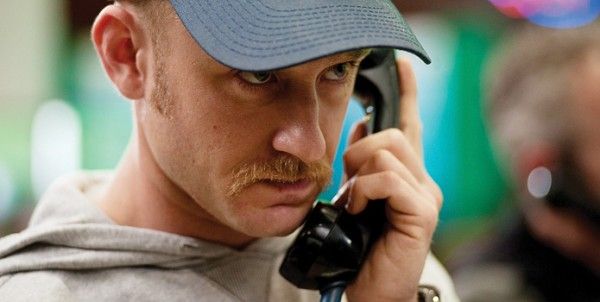360 is not a movie I'd expect from Fernando Meirelles and I don't mean that as a compliment. Mierelles' previous films (City of God, The Constant Gardener, Blindness) have an energy to them and they tackle serious subject matter in a way that's tense, gripping, and unexpected. 360 is none of those things. It's another tired anthology of uninspired vignettes that show us how we're all connected especially if the script is written that way. The movie manages to waste a talented cast, its director's abilities, and two hours of the viewer's time.
The plot of 360 moves from one short story to another with the following vignette connected to the one that preceded it. There's a businessman (Jude Law) who wants to cheat on his wife, his wife (Rachel Weisz) who's cheating on him with a guy who's cheating on his girlfriend (Maria Flor). There's also a high-priced hooker from Bratislava, a father (Anthony Hopkins) flying to Phoenix to see if a dead Jane Doe is his missing daughter, a recently-released sex offender (Ben Foster) struggling to cope with the outside world, a Muslim dentist who can't declare his love for a woman, a woman who's unhappy in her marriage, and her husband who's unhappy working for a wealthy scumbag.
The point of every story and the entire film is to show how one chance interaction can change the course of someone's life. I know this because the film opens and closes with a character talking about forks in the road and which path to take. But even if the film hadn't broadcasted its thesis and conclusion, the plot is so simplistic that any viewer could pick it up. It's the hippy-dippy nonsense that there are no coincidences, and we must open ourselves up to life and other people because we never know where life will take us. Let's hug.
I'm not keen on anthology films and 360 is prime example of why. It's possible to manage ensemble casts and short, interconnected stories, but it's incredibly difficult. The economy of storytelling must be superb and we should be left wanting more from every segment because the characters and story have captured our attention in a brief span of time. But that's not how it usually works out. Instead, we get some high-profile actors who showed up on set for a few days and did a couple scenes. All of the stories and characters are underdeveloped and before we can even begin to delve deeper, it's on to the next person we don't care about who's loosely related to the previous tale.
If 360 had perhaps cut some of its weaker plotlines it could have been a stronger film and still made its point (however hackneyed that point may be). Ben Foster gives a great performance that's both creepy and filled with inner-torment. We get his character for all of three scenes. Anthony Hopkins brings some much needed gravitas and he has a moving story that could continue to go places. He gets about four scenes. Most of the stories in the movies show some kind of potential (the infidelity plotlines should be cut since they're redundant, predictable, and unworthy of actors like Weisz and Law), but they're seeds that are never given the chance to grow because their sole purpose is to form the narrative's idiotic daisy chain.
Based on Mierelles' earlier work, one would hope he could inject some life and originality into this difficult format and its asinine subtext. Instead, he falls victim to it. Aside from some erratic and unimaginative use of split screen there's no creativity or flair to the storytelling. The film could have been directed by anyone and it's sad to see a director of Mierelles' talent disappear behind boring shot choices, lethargic pacing, and washed-out cinematography. 360 goes through multiple lives and multiple cities. It also goes absolutely nowhere.
Rating: D
For all of our coverage of the 2011 Toronto International Film Festival, click here. Also, here are links to all of my TIFF 2011 reviews so far:



